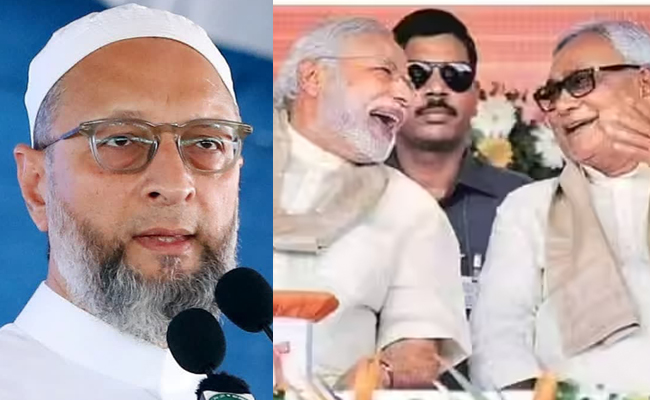
India News

The political heat in Bihar is rising fast as the NDA alliance has finally reached a seat-sharing agreement after prolonged talks. The BJP, JD(U), and their allies have decided on how to divide the seats, finalizing their respective numbers. However, with Bihar having a significant Muslim voter base, the decision of the All India Majlis-e-Ittehadul Muslimeen (AIMIM) — one of the country’s prominent Muslim-based parties — to contest a large number of seats has become a major political talking point.
AIMIM is reportedly planning to contest in as many as 100 constituencies in the upcoming Bihar Assembly elections. Given the party’s limited winning potential, this move has sparked criticism. Observers question why the party chose to field candidates not just in areas where it has strong chances but across 100 seats — leading many to suspect that the AIMIM’s real intention is to split the anti-BJP vote, thereby indirectly helping the ruling party.
Bihar has a total of 243 Assembly seats. Both the BJP and JD(U) will contest 101 seats each, while the NDA’s smaller allies — Lok Janshakti Party (Ram Vilas) will contest 29 seats, Hindustan Awam Morcha 6, and Rashtriya Lok Morcha 6. JD(U) leaders confirmed this arrangement, and Union Minister Dharmendra Pradhan said the decision was finalized during the BJP Central Election Committee meeting attended by PM Narendra Modi and senior leaders.
Though BJP leaders claim that party cadres across the alliance are happy with the seat-sharing deal, ground-level reactions tell a different story. For the first time, the BJP and JD(U) are contesting an equal number of seats. Traditionally, JD(U) used to get more. This shift has already created tension — several JD(U) workers protested outside the party office after losing their constituencies. Similarly, Hindustan Awam Morcha leader Jitan Ram Manjhi, who had demanded 15 seats but received only 6, is reportedly unhappy.
Amid this internal discontent, AIMIM’s decision to contest 100 seats adds another twist. Even if the party manages to win just one or two constituencies, its presence in multiple contests is expected to divide Muslim votes — votes that would otherwise go to anti-BJP parties. In effect, this split could benefit the BJP-led NDA alliance. Hence, growing criticism suggests that AIMIM’s large-scale participation may, intentionally or not, end up helping the BJP.
Advertisment